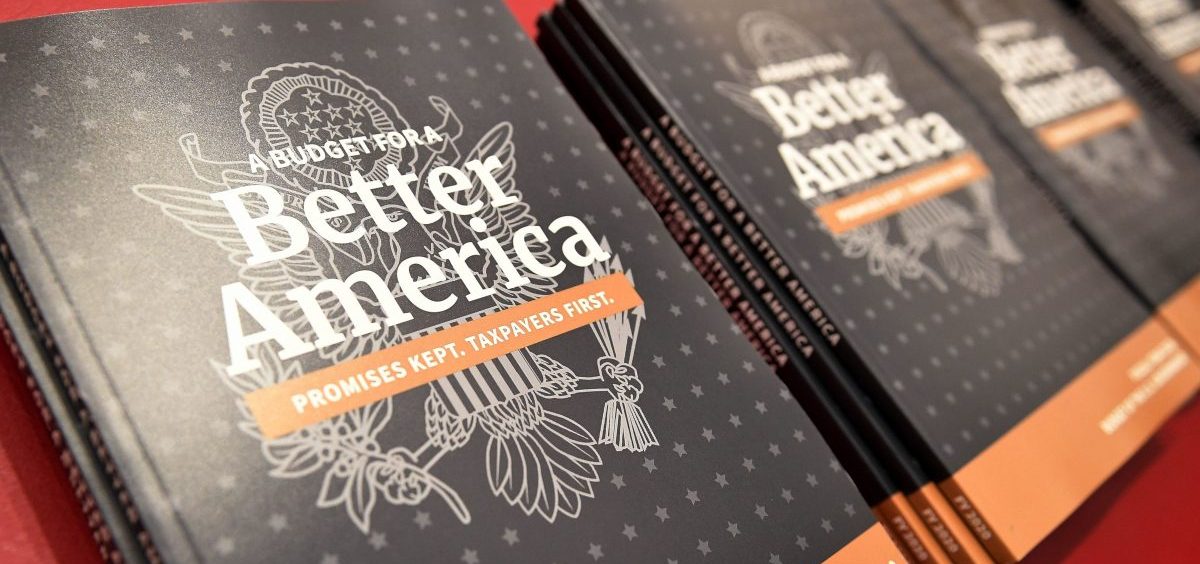News

Trump Seeks More Border Wall Funding In New Budget
By: Scott Horsley | NPR
Posted on:
Updated at 11:46 a.m. ET
President Trump’s budget proposal for 2020 calls for $8.6 billion in new border wall funding, a signal that the White House is not backing away from its demand that triggered a 35-day government shutdown.
The border wall is just one flashpoint in the president’s $4.7 trillion budget blueprint. Trump is also calling for a 5 percent boost in military spending along with deep cuts to domestic programs and foreign aid.
“In a time of $1 trillion deficits, we can no longer afford some of these activities,” acting White House Budget Director Russell Vought told Morning Edition.
The president’s budget calls for a 23 percent cut in State Department funding, a 15 percent cut in spending by the USDA, and a 31 percent cut in the budget for the Environmental Protection Agency. The budget for Homeland Security would increase by 7.4 percent.
Congress largely ignored previous Trump budgets, even when Republicans were in full control. That’s practically certain to happen now that House Democrats have a shared grip on the purse strings.
“President Trump hurt millions of Americans and caused widespread chaos when he recklessly shut down the government to try to get his expensive and ineffective wall, which he promised would be paid for by Mexico,” House Speaker Nancy Pelosi said in a joint statement with Senate Democratic leader Chuck Schumer. “The same thing will repeat itself if he tries this again. We hope he learned his lesson.”
While the president’s budget is unlikely to be implemented, the document does carry some weight as a signal of Trump’s desires, including money to expand barriers along the U.S. border with Mexico.
“We have a crisis down there,” White House adviser Larry Kudlow said on Fox News Sunday. “The whole issue of the wall and border security is of paramount importance.”
Kudlow dismissed concerns with the federal budget deficit, which has ballooned as a result of the GOP tax cuts and increased government spending.
“I don’t think good growth policies have to obsess necessarily about the budget deficits and so forth,” Kudlow said.
The deficit in the past fiscal year was $779 billion, or 3.9 percent of GDP. The budget projects that the deficit will exceed 5 percent of GDP this year — unusually high for a country not mired in recession or widespread war.
The White House doesn’t forecast a balanced budget at any point during Trump’s presidency, even with rosy projections for economic growth. The budget anticipates growth of 3.2 percent in the coming year, considerably stronger than most outside forecasters, and stronger than the U.S. achieved in 2018.
9(MDI4ODU1ODA1MDE0ODA3MTMyMDY2MTJiNQ000))

